All products featured are independently chosen by us. However, SoundGuys may receive a commission on orders placed through its retail links. See our ethics statement.
Best AI music generators
Published onMarch 27, 2025
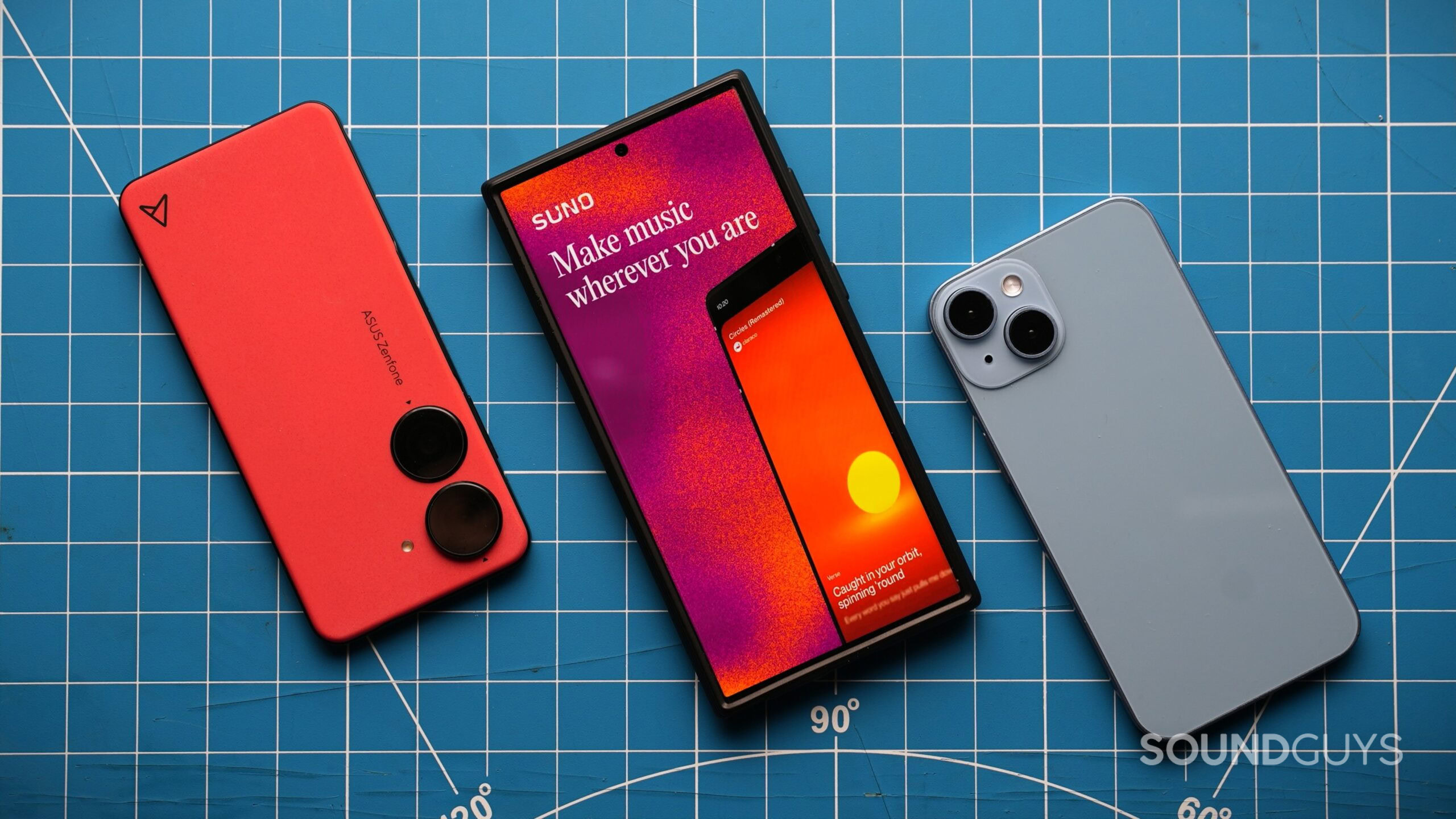
AI music tools are getting ridiculously good and easy to use. Whether you want to make beats, chill soundscapes, or even have an AI sing your own lyrics, there’s something for everyone. Here’s a rundown of the best AI music generators you can try right now.
Editor’s note: this list was published on March 27, 2025, and is the first version of the article. Updates will follow as the market changes.
Best AI music generator overall: Suno AI
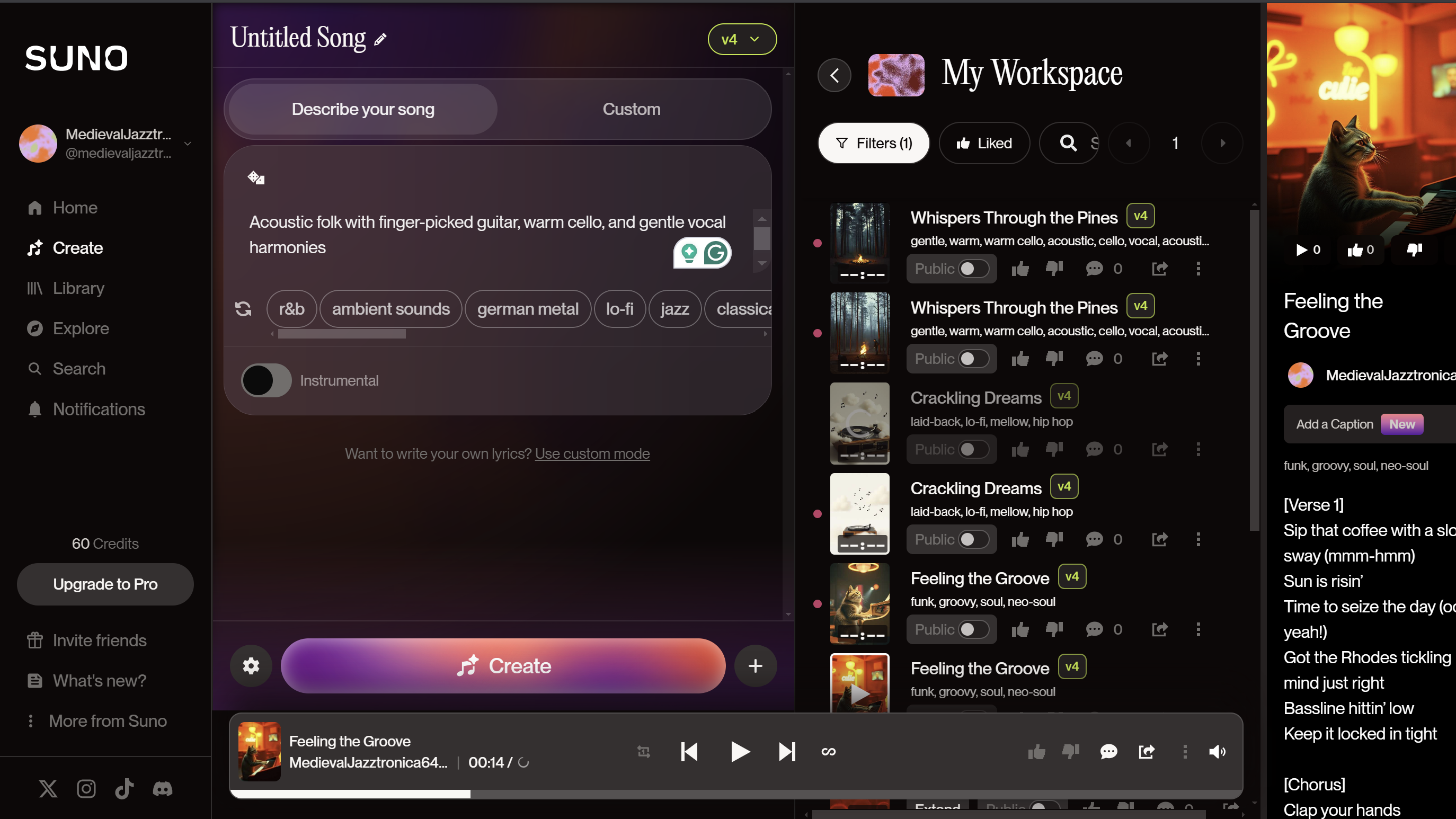
I had a blast playing around with Suno AI. It does something most tools can’t: it generates complete songs with vocals. Just give it a prompt like “a jazz song about watering my plants,” and it’ll whip up a couple of tracks with lyrics, singing, and instruments in seconds. I was genuinely impressed by how good some of the results sounded. There’s also a mobile app, so you can create music on the go, and a custom mode if you want to write your own lyrics.
Pros:
- Super easy to use — just enter a prompt and go.
- Generates vocals and lyrics, not just instrumentals.
- Instant results, perfect for quick ideas or fun.
Cons:
- Lyrics can be hit-or-miss — sometimes a bit generic or weird.
- Limited control over the music beyond prompts.
- The free plan limits you to 10 songs per day.
Pricing: The free plan offers 50 credits/day (about 10 songs). Paid plans start at $8/month for more credits.
Boomy
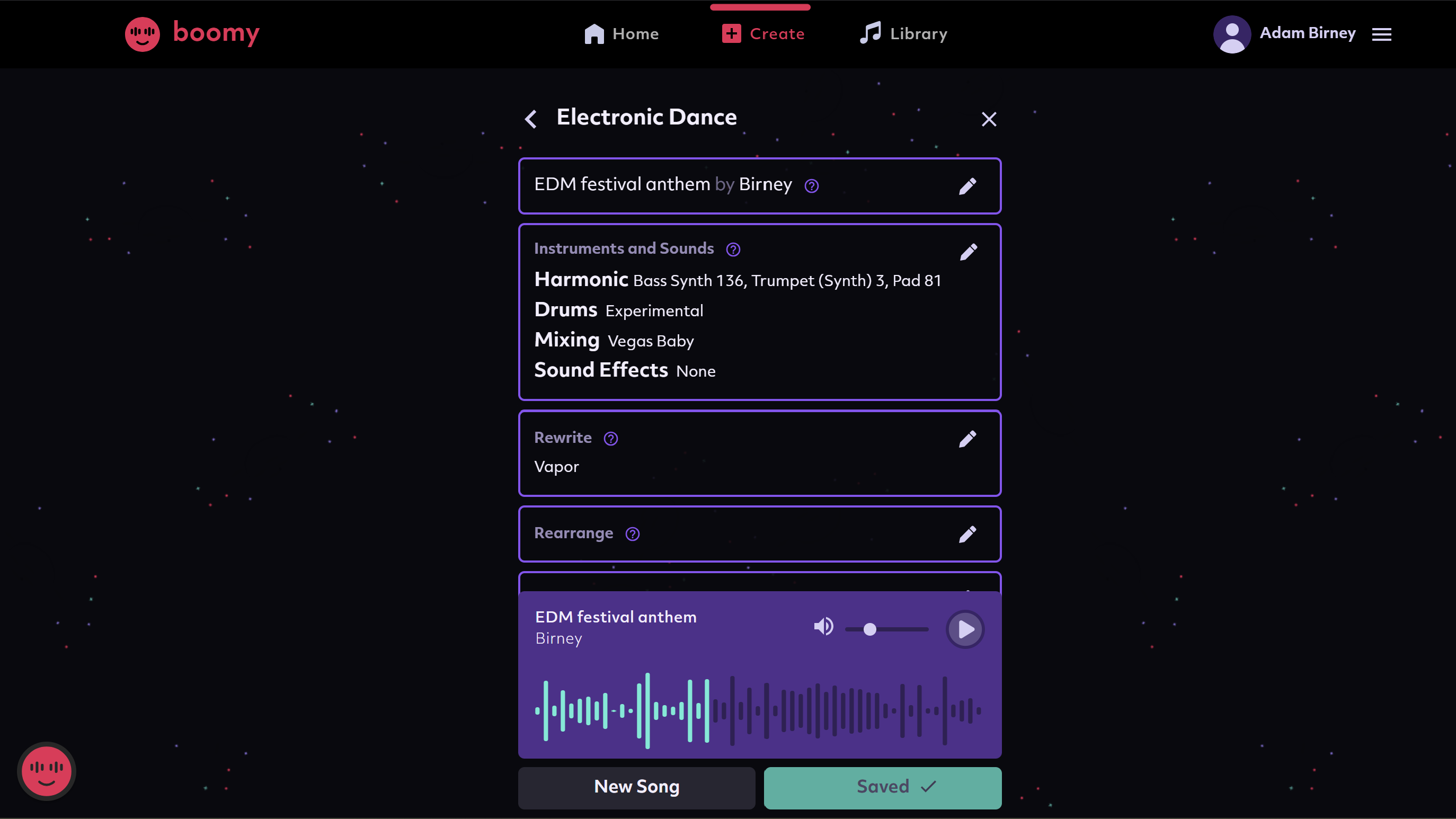
Boomy feels better than it has any right to be for making songs without any effort. You pick a style (lo-fi, EDM, hip-hop, etc.), click a button, and boom — it generates a full song in seconds. I had a lot of fun trying out different genres and hearing what Boomy came up with. The fact that you can even release tracks on Spotify and earn royalties is also a plus that takes very little effort.
Pros:
- Stupidly simple interface.
- Tons of genres to explore and mix.
- Lets you publish tracks to Spotify and earn royalties.
Cons:
- Limited customization options.
- Free users can’t download songs.
- Some tracks can sound generic.
Pricing: Free plan gives you 25 saves per month. Paid plans start at $9.99/month.
Loudly
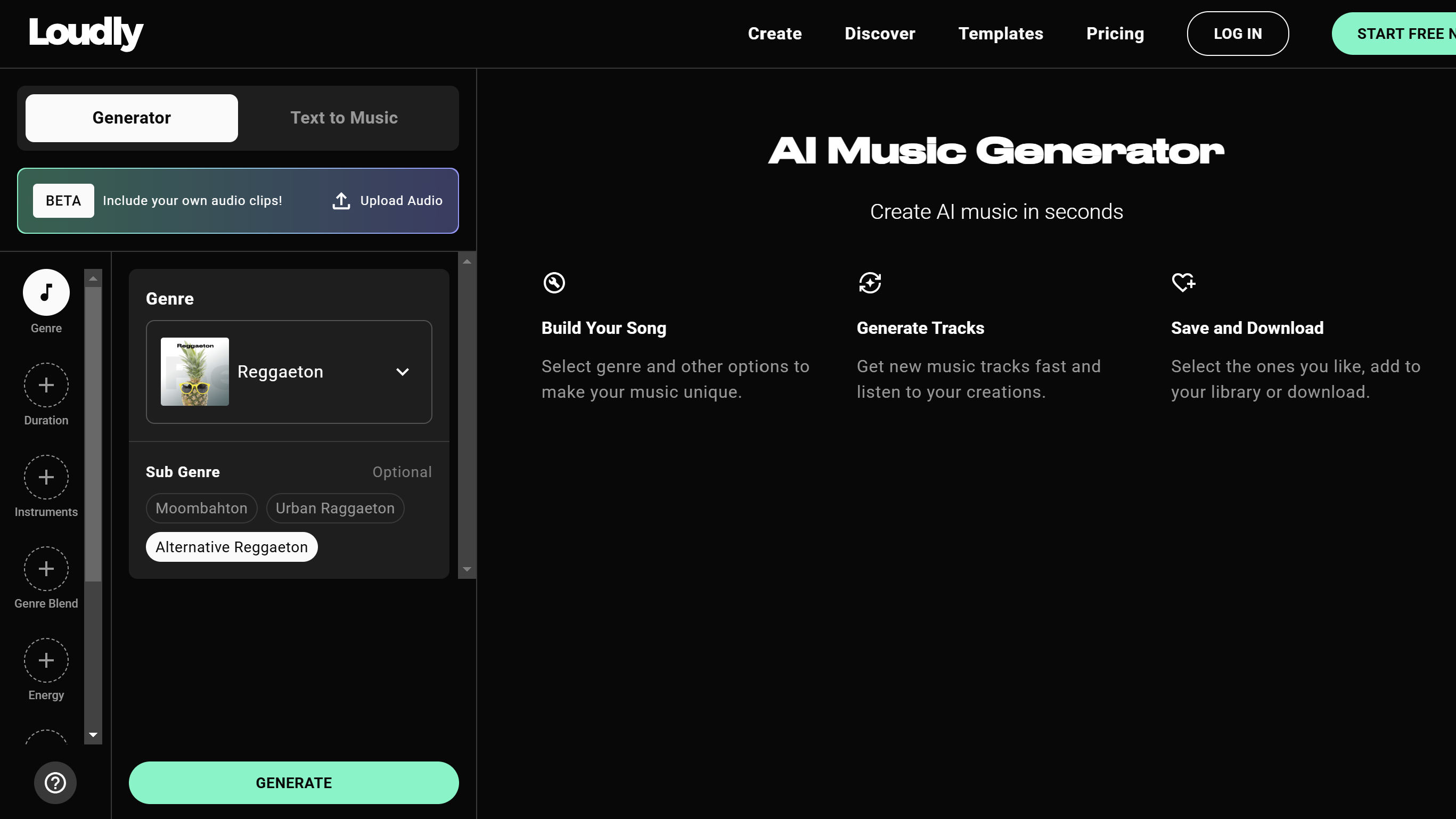
Loudly surprised me with how clean and professional its tracks sound. You pick a genre, and it generates multiple tracks for you to choose from. The audio quality is a noticeable step up from most other AI tools. Plus, it’s a blast to mess around with the effects and see what different tweaks can do.
Pros:
- Good audio quality
- Quick generation and multiple track options.
- Easy-to-use interface with customizable effects.
Cons:
- No vocals or lyrics.
- Free plan only gives you one download per month.
- Limited editing options.
Pricing: Free plan allows 25 generations/month (30 seconds each). Paid plans start at $5.99/month.
Beatoven
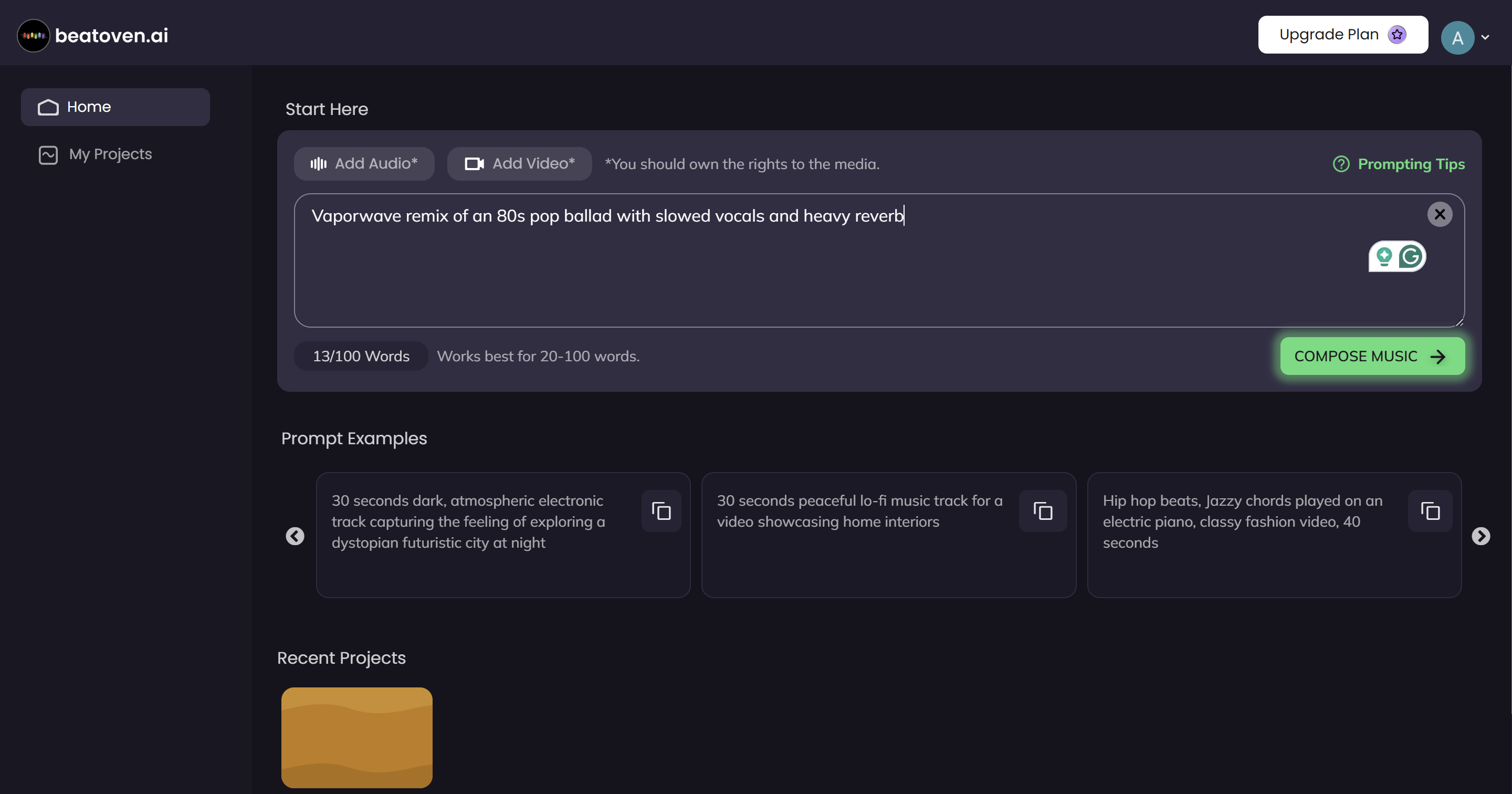
Beatoven is my go-to when I need some background music for a project or just want something chill to listen to. It’s all about setting the mood — you pick the vibe, and it builds a track that matches. The results can be hit or miss, but when it nails the mood, it’s awesome.
Pros:
- Mood-based generation — perfect for scoring projects.
- Easy to use, with built-in templates for quick starts.
- Royalty-free music for personal and commercial use.
Cons:
- Quality varies depending on genre and mood.
- Instrumental-only — no vocal generation.
- Limited to a set number of tracks per month on free plan.
Pricing: Free trial available. Paid plans start at around $6/month.
Mubert
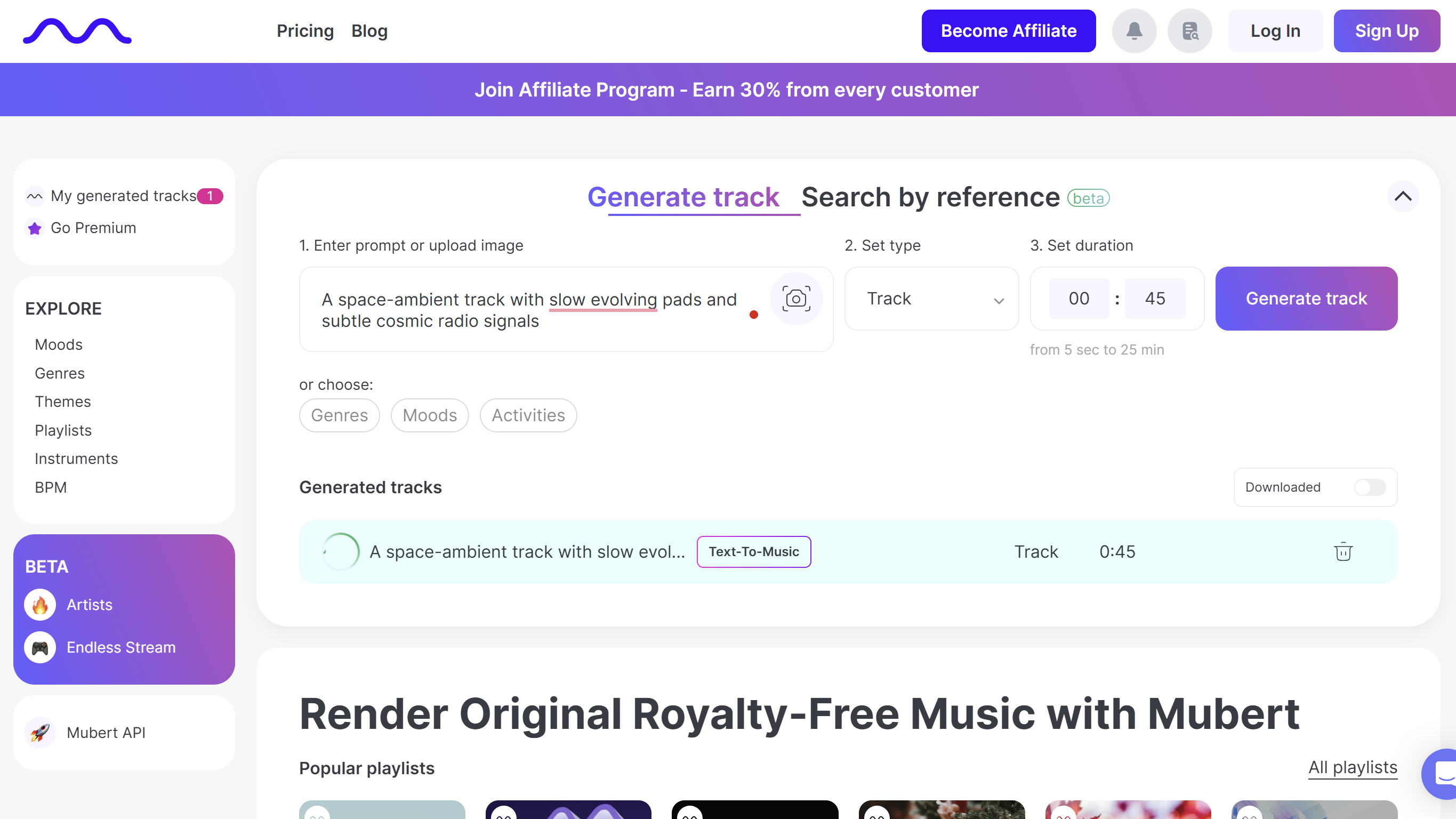
Mubert is another great AI tool for ambient music. You can type in your mood, like “chill lo-fi beats” or “futuristic ambient,” and it spits out something that often satisfies what you’re searching for. It’s especially fun to use while studying or creating a chill playlist.
Pros:
- Huge variety of styles and moods.
- Royalty-free music for videos, streams, or personal use.
- Instant track generation.
Cons:
- Free version inserts a watermark in the music.
- No vocals or lyrics – purely instrumental.
- Limited control over composition.
Pricing: Free demo available. Paid plans start at $14/month.
Riffusion
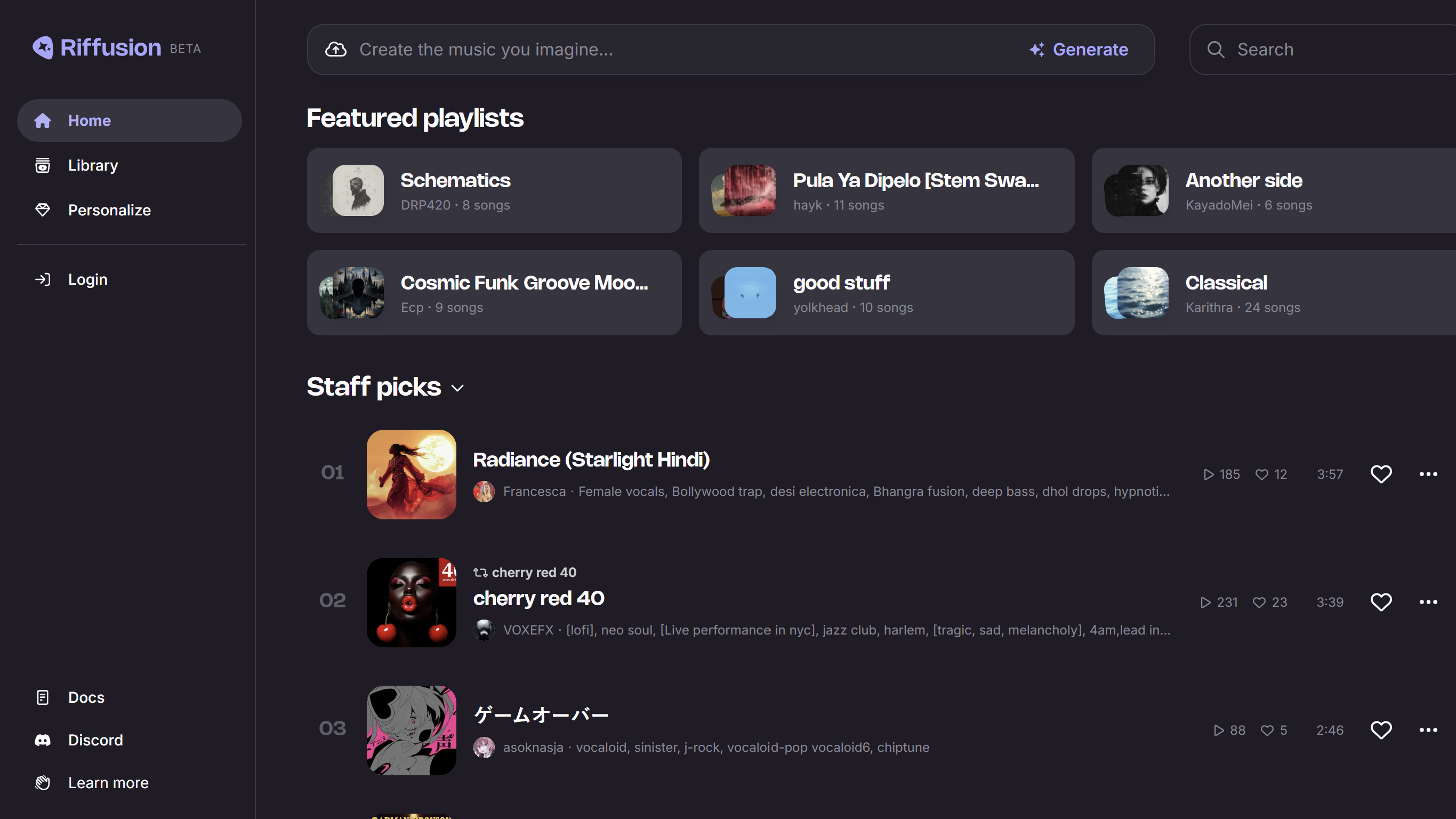
Riffusion is just plain fun. It’s completely free and makes catchy music from whatever text prompt you give it. If you want to try something silly like “jazzy alien disco” or “haunted piano in the rain,” Riffusion will come up with something cool.
Pros:
- Completely free to use.
- Fun for experimenting with weird sounds and genres.
- Easy to use.
- Can produce full songs, not just loops.
Cons:
- Quality can be hit-or-miss.
- No commercial use without further editing.
Pricing: Completely free.
AIVA
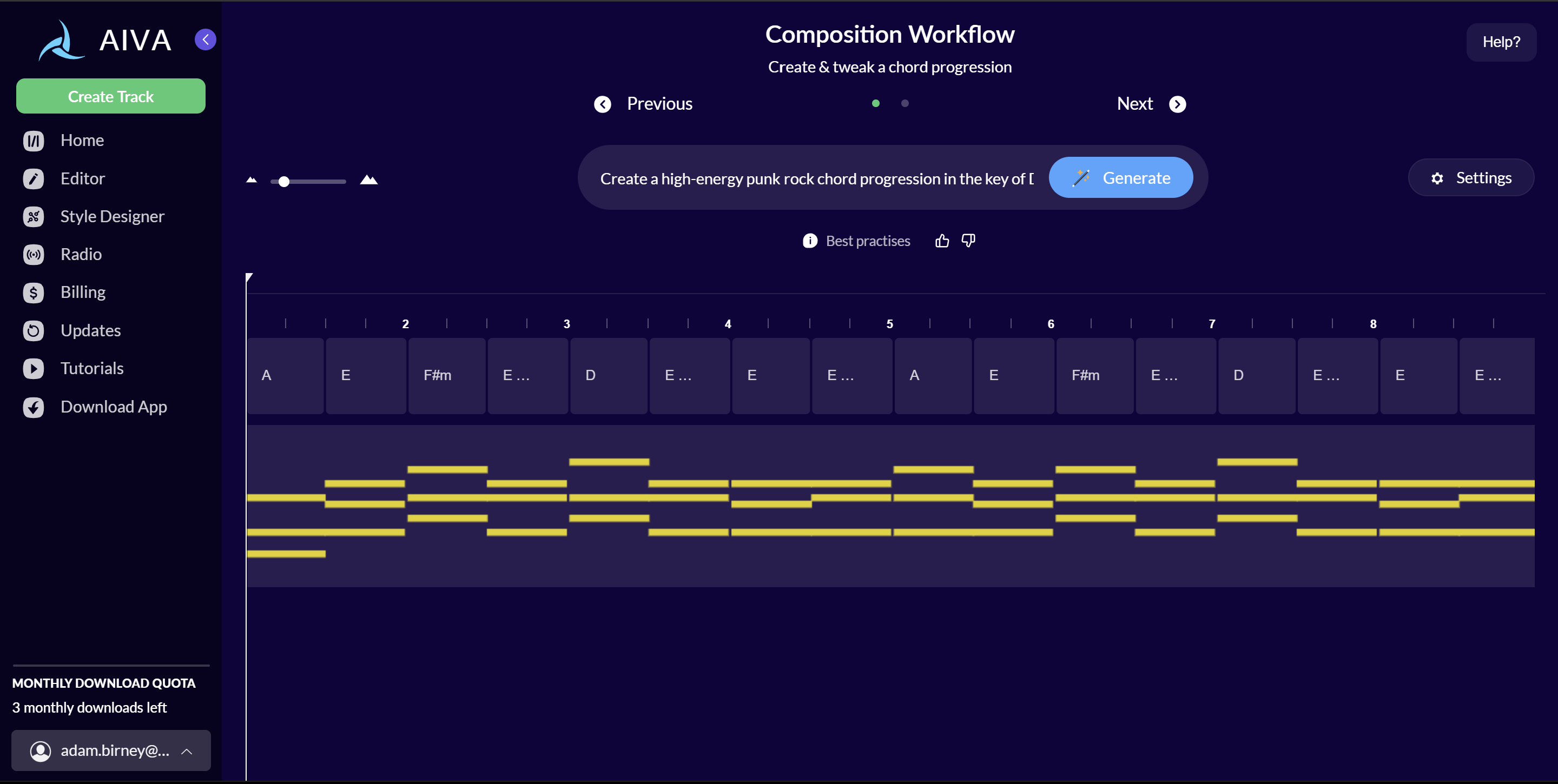
AIVA is my go-to AI assistant for when I want to make something that sounds epic. It’s perfect for composing classical pieces or even cinematic soundtracks for videos. The fact that it can export sheet music is a bonus for anyone who actually plays an instrument.
Pros:
- Great for classical and film-style compositions.
- Highly customizable and lets you edit notes and arrangements.
- Can export MIDI and sheet music for further editing.
Cons:
- Instrumental-only, no lyrics or vocals.
- More complicated than simpler tools.
- Limited free tier.
Pricing: Free for non-commercial use. Paid plans start at €11/month.
All of these AI music generators are great for casual users looking to have fun with making music. Boomy and Suno AI are especially good for instant songs, while Beatoven and Mubert are fantastic for background tracks. Riffusion is a fun toy for free music loops, and AIVA is a treat if you want to try composing more complex music. Happy experimenting!
The key to getting the most out of these tools is to be specific with your prompts. For example:
- Instead of “lo-fi beat,” try “chill lo-fi beat with vinyl crackle, soft piano, and a rainy night vibe.”
- Instead of “rock song,” try “gritty rock song with heavy guitar riffs, moody vocals, and dark lyrics about heartbreak.”
The more details you give, the better the AI can match your vision.